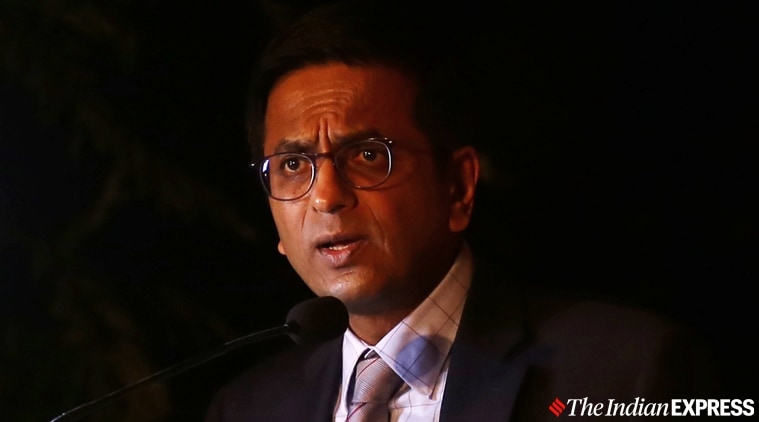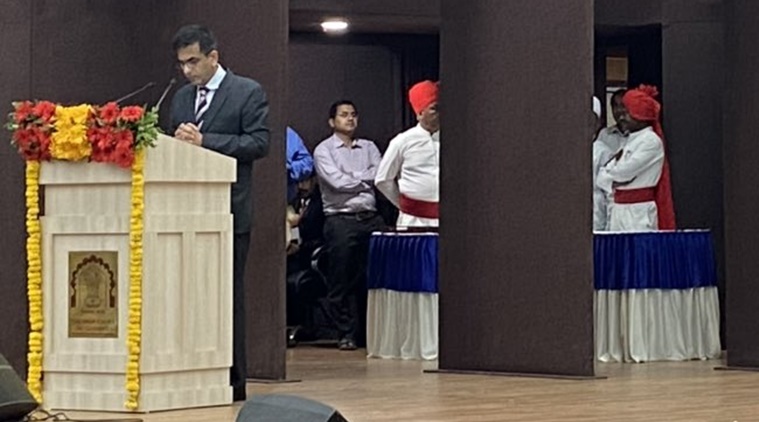 Justice D Y Chandrachud was delivering a lecture on “The hues that make India: from plurality to pluralism”. (File/Express photo: Nirmal Harindran)
Justice D Y Chandrachud was delivering a lecture on “The hues that make India: from plurality to pluralism”. (File/Express photo: Nirmal Harindran)
Supreme Court judge Justice D Y Chandrachud on Saturday said that labelling dissent as “anti-national” or “anti-democratic” strikes at the heart of deliberative democracy.
He also termed dissent as the “safety valve of democracy” and said that silencing of dissent and the generation of fear in the minds of people go beyond the violation of personal liberty and a commitment to constitutional values.
“A legitimate government committed to deliberate dialogue does not seek to restrict political contestation but welcomes it…A state committed to the rule of law ensures that the state apparatus is not employed to curb legitimate and peaceful protest but to create spaces conducive for deliberation,” Justice Chandrachud said while delivering the 15th P D memorial lecture at the Gujarat High Court auditorium in Ahmedabad.
“Within the bounds of the law, liberal democracies ensure that their citizens enjoy the right to express their views in every conceivable manner, including the right to protest and express dissent against prevailing laws. The blanket labelling of such dissent as ‘anti-national’ or ‘anti-democratic’ strikes at the heart of our commitment to the protection of constitutional values and the promotion of deliberative democracy,” he continued.
Significantly, Justice Chandrachud was part of a bench that had sought response of the Uttar Pradesh government on a plea seeking quashing of notices sent to alleged protesters for recovering losses caused by damage during the anti-Citizenship Amendment Act agitations in the state.
He further emphasised that “the commitment to civil liberty flows directly from the manner in which the State treats dissent”.
 Justice Chandrachud while delivering the 15th Justice PD Desai Memorial Lecture in Ahmedabad. (Express photo: Sohini Ghosh)
Justice Chandrachud while delivering the 15th Justice PD Desai Memorial Lecture in Ahmedabad. (Express photo: Sohini Ghosh)
Justice Chandrachud, who was delivering a lecture on “The hues that make India: from plurality to pluralism”, also said that the true test of a democracy is its ability to ensure the creation and protection of spaces where every individual can voice their opinion without any fear of retribution.
‘Elected governments cannot claim monopoly over values’
Speaking at the event, Justice Chandrachud also stated the suppression of difference and silencing of popular or unpopular voices that offer alternate views is a great threat to pluralism in the country.
“Protecting dissent is but a reminder that while democratically elected governments offer us a legitimate tool for development and social coordination, they can never claim a monopoly over the values and identities that define our plural society. The employment of state machinery to curb dissent, instill fear and create a chilling atmosphere on free speech which violates the rule of law and detracts from the constitutional vision of a pluralist society…The destruction of spaces for questions and dissent destroys the basis of all growth — political, economic, cultural and social,” he said.